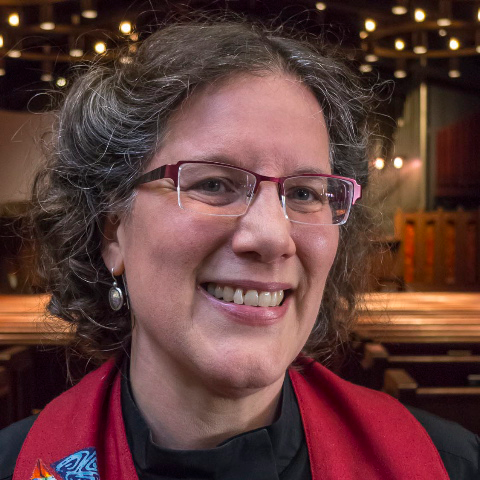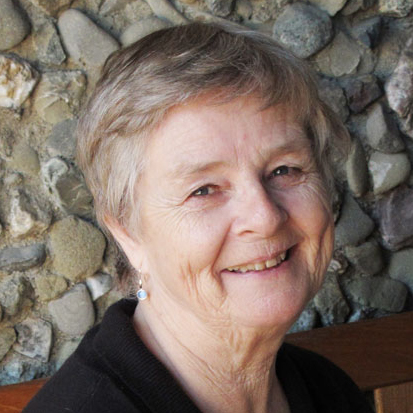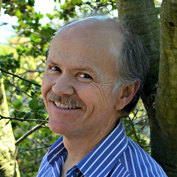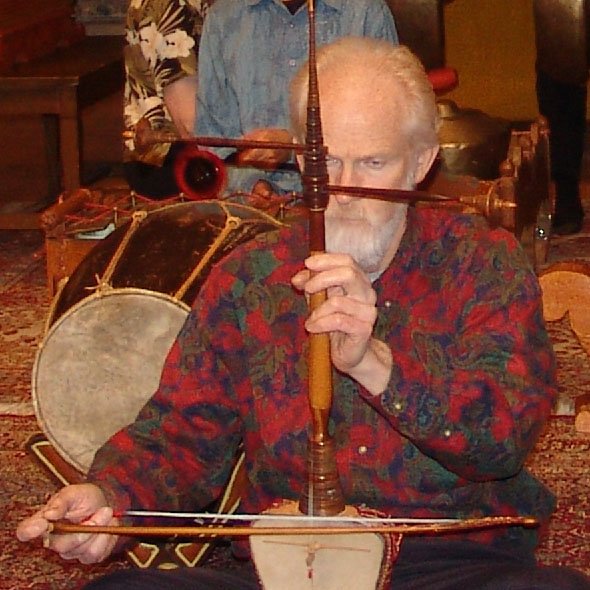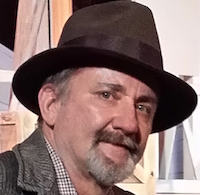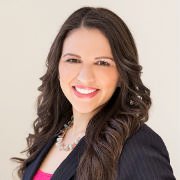Select these links for information about our current ministers and community ministers.
 Community Ministers
Community Ministers
by Rev. Jane Ramsey
To my knowledge UUCB’s first community minster was Rev. Mary Kapper, a hospice chaplain in the mid-nineties, followed by Rev. Patty Franz, who at the time was a hospice chaplain and as since moved on to head up the prison ministry program at the UU Church of the Larger Fellowship. Then came Rev. Cat Cox (Spiritual Director), followed by Rev. Jane Ramsey (hospice chaplain), then Rev. Lisa Sargent (hospital chaplain) then Rev. Theresa Hardy (hospice chaplain), and Sonya Sukalski (public advocacy and youth). Throughout my studying for and later becoming a UU community minister I have heard many stories of congregations NOT being willing to have community ministers. Thus, in this church, we have had community ministers for approximately 15 years! This congregation has ALWAYS been absolutely wonderful and welcoming of us. This is a great church with which to be affiliated.
The Institute of Logotherapy
by Fern Roberts-Labuhn
Joseph and Judith Fabry were longtime members of our Church. Joe met Victor Frankl in one of the German concentration camps. Dr. Frankl was a psychiatrist who was trying to survive by finding some sort of meaning even in the worst of situations. He could tell when someone had given up and no longer cared whether they lived or died. He would go to them and try to help them find meaning in their lives whether it was living for a child they might find in the future or to realize someone they could live for now. He later called this new type of therapy Logotherapy or meaning-oriented therapy.
Being a budding psychotherapist back then, I was interested in learning more about Logotherapy. Since my mother, Erda Labuhn, was its secretary I became involved. There were many discussions up at the church where we were helped to find what was meaningful on many levels in our own lives. Both Judy and Joe were kind, loving and generous people.
There were several psychotherapists and individuals who worked with Logotherapy and wanted to join Joe and Judy on their trip back to Germany to visit the camps and areas where they had lived before the Holocaust. Mom and I joined them.
We went to the University where Dr. Victor Frankl was teaching and experienced sitting in the vast classroom where the seats went up and up almost to the ceiling. We were not able to visit the camps, but many of the group needed closure for themselves and their families. It was an eye-opening experience and an emotional one.
Our church has had and will continue to have many life changing experiences. I appreciate all the knowledge and generosity of it members and friends.
Current Ministry at UUCB
by Kay Fairwell, adapted from the 2010–2011 UUCB Annual Report on Global Ends
In the UUCB Governance Document, the church’s end or goal regarding ministry states:
“Ministries at UUCB are deeply shared by ministers and laity. These ministries encompass support in time of need, celebration of life transitions, sharing life stories and learning, conflict resolution, and pastoral counseling.”
In this report that the Coordinating Team (CT) made to the Board of Trustees, the CT determined that the congregation met the Ministry End in diverse ways, with shared ministry existing in all aspects of congregational life, including but not limited to those named in this End. The CT estimated that at least 45% of the members of the congregation have been involved in shared ministry.
We recognize deeply shared ministries at UUCB in several ways. We understand “deeply shared” to mean an increasing percentage of members, over time, engaged in shared ministry. Although simply participating in a program or activity does not fit the criteria of “deeply shared,” it is a reasonable indicator of the level of “shared ministry” within the congregation and therefore a surrogate for “deeply shared,” which implies a deeper level of ownership.
In addition, “deeply shared” means knowing the number of ministries that are co-led by lay leaders and ministers. In this sense, “deeply shared” means a commitment to the program/ministry beyond attendance. Although members who are willing to lead activities at the church are not the only members who are part of “deeply shared” ministry, using this definition does give us a useful measurement over time. Lay members who are willing to take leadership positions are more likely to feel a strong commitment to the program, so increasing percentages of members who take these positions is an indication of the depth of shared ministry.
These two understandings are quantitative ways of measuring “deeply shared.” In the future we will survey the congregation to assess their qualitative evaluation of “deeply shared.” (For 2012, the CT appointed a taskforce to develop this survey.) “Deeply,” in this sense, points to “how meaningful?” is the sharing of the ministry. Regardless of the number of participants and leaders, our ministries are “deeply shared” and our members supported only if members perceive it is so. This survey will insure a representative sample that gives us a statistically valid result. We will ask for ratings in response to: How fully have you felt supported in: time of need, celebration of life transitions, sharing life stories and learning, conflict resolution, and pastoral counseling?
The CT believes the congregation meets this Ministry End in diverse ways, with shared ministry existing in all aspects of congregational life, beyond those named in this End. For instance, shared “administry” includes lay and called ministers participating in governance (Board of Trustees) and management (Coordinating Team). Some groups included in the “Education End” are shared ministries. Examples are Religious Education and Family Ministry and the Intern Committee. Shared ministry in the larger world includes the work of UUCB members, friends, and Community ministers.
In time of need…
[Statistics here are from 2011.] We have six key ministries in this area. They include Caring Circle (7 participants), Chalice Circles (81 participants), Appreciation Circle (9 participants), Super Cards (average 2–3 per week), Memory Book—Prayer (average 5 per week), and the Ministers’ Discretionary Fund (about 25 contributors, and 3 recipients to date). Participants in these ministries, giving or receiving support, include about 40% of the membership.
The first five ministries have deeply committed members who co-lead the efforts, and while the latter is dispersed at the discretion of the ministers, we believe is it also “deeply shared” because of the commitment required from the donors. (Members donate 100% of funds.)
Shared ministries difficult to quantify are hospital visits and phone calls to those in need. Ministers provide formal pastoral counseling. Members’ support of one another is apparent, though difficult to quantify. We note the average number of weekly Super Cards, but not the average number of people who sign them.
In celebration of life transitions…
We understand “celebrations of life transitions” to be the marking of milestones in people’s lives. Such milestones include weddings, child births, child blessings, graduations, divorces, job transitions, moving or relocation, loss of employment, new employment, attaining elder status (Doctors of Durability service), and memorial services.
Most formal celebrations of life transitions are by their nature led by clergy. These include weddings, memorial services, and child blessings. Other life transitions are recorded in the Memory Book and spoken in the Sunday Meditation and Prayer, and noted on Super Cards. These ministries and services like the Doctors of Durability honoring of elders are co-led.
Major life transitions are recorded monthly in the Beacon, and each year in the Wheel of Life.
We estimate that over 200 (>43%) members’ live transitions were celebrated in these ways in the last year.
In sharing life stories and learning…
We understand “sharing life stories and learning” to be the myriad ways UUCB offers and encourages people to speak of their lives reflecting on how meaning has been understood and shaped.
Such opportunities include “Sharing the Journey” in Sunday services, participation in Chalice Circles, presentations in Personal Theology, Board Members sharing in the Third Thursday evening worship services, participation in writing and other workshops, and presenting as lay speakers in Sunday services such as Wholly Families, Decades Speakers, Doctors of Durability, and the recent services on “Addictions” and “Coming Out.”
We estimate over 40% of the congregation have participated in at least one of these opportunities. Leadership is shared for Sunday and Third Thursday services. Lay leaders schedule Personal Theology, and our ministers are yearly presenters. Ministers and members lead workshops.
In conflict resolution…
We understand “support in conflict resolution” to be offering resources to enable people to better understand and empathize with one another. Such resources vary from the brochure prepared by the Living Our Covenant Team and our Covenant of Right Relations, to human resources including workshops on Non-Violent Communication and conflict resolution.
The past year has included many efforts in conflict resolution. With the admission of ministerial misconduct by a former minister, a Safe Congregation Task Force was formed with members of the Board of Trustees, the Committee on Ministry, and the Coordinating Team. Expert resource persons were invited to lead three congregational sessions. Most recently, the Safe Congregation Commission was formed.
We estimate approximately 30% of the congregation has participated in at least one activity around conflict resolution in the last year.
Leadership of conflict resolution efforts has been shared. The Board President and a Community minister have presided at congregational gatherings. Another community minister has led short training sessions at Board of Trustee meetings. A third community minister and the Past President of the Board of Trustees co-convened the Survivors Wisdom Counsel. All five community ministers, the intern minister, the three called ministers, the Board of Trustees, the Committee on Ministry, and the Coordinating Team stood together to lead a re-covenanting following the disclosure of ministerial misconduct.
In pastoral counseling…
By definition, we understand “pastoral counseling” to be support offered by “pastors,” or in our case, usually called “ministers.” Ministerial training requirements include pastoral care. Pastoral counseling is usually offered one-to-one or in small groups, but some sermons are “pastoral care” in nature. Pastoral counseling refers primarily to spiritual or religious issues, or questions of meaning in life.
Pastoral counseling is offered by all of our ministers (called, intern, and community), working with individuals, couples, and groups. One community minister has offered groups in Transitions, Aging and Beyond (formerly Facing Aging and Dying), Grief Support, and Memory Improvement Over 40. Another is an accredited spiritual director. Pastoral counseling happens when planning weddings, child blessings, and memorial services. Our Chaplains program provides a pastoral presence after Sunday services, at the Memory Book Table.
The Survivors Wisdom Counsel was an example, this year, of a pastoral counseling group co-led by a community minister and lay leader.
We estimate approximately 20% of congregation members have been involved in some sort of pastoral counseling in the last year.
Small Group Ministry
by Kay Fairwell (adapted from the Chalice Circles brochure)
Small Group Ministry is a spiritual practice that creates a sacred space where we can tell the stories of our lives, be heard, and listen deeply to those of our companions. This is the heart of the Chalice Circle experience.
A Chalice Circle has three parts. The first is preparation to discuss the topic. At the end of each meeting, the facilitator lets the group know what the topic is and provides a number of leading questions to help the participants focus their thoughts. This lead-time is important for a person’s thinking process to consider the most relevant experiences and to build the courage to speak their truth. The second part is the exercise of telling that story in a protected space to a group of people who are similarly vulnerable. This is a wonderful experience: to be listened to. Most participants don’t realize how rare this is and how much they want it until they experience it in a Small Group Ministry setting. It is a feeling of being both known and valued. The third element of this experience is deep listening. This comes naturally to people who have practiced meditation, because they have trained themselves to empty their minds and listen to their breath, to be open to the sounds of the environment, to allow their own feelings and thoughts to dissolve and dissipate. It is very different from the listening we often do in “real” life, where we are thinking of what we are going to say next instead of listening to the person who is speaking.
Speaking and listening in a Chalice Circle violates some customs in normal conversation. We may feel awkward, or even impolite, speaking solely from own experience; and it may feel unsociable not to be framing a response as we listen. But the rewards are great. The practice of speaking our truth can help us to become more aware of our experience as uniquely ours. The support of the group is crucial for this expansion of self-awareness: without them we wouldn’t bother to examine our experience so deeply and without suspending some conventions of ordinary discourse we wouldn’t express them. In the Small Group Ministry literature this process is described as “listening each other into being.”
Most Chalice Circles start in the fall and go through May of the following year. The Circles generally meet twice a month. Some Circles may start later if there is a demand. If you are interested in a Chalice Circle, please contact the church office.
The Numinous Circle
by James Schinnerer
Since 2001 when I first started going, Numinous Circle has been primarily a sharing circle that followed a format described in the document “The Numinous Covenant.” Basically we went around the circle and, while everyone else listened, each person got to share whatever was on their mind or happening in their life that was important to them. No comments or feedback (unless specifically asked for) were given, and it was agreed nothing a person said would be shared outside the group. This allowed people to share very personal and intimate stuff without fear of judgment or gossip. During this period we met at UUCB twice a month in various spaces, usually the Chrysalis Room or the Fireside Room. The group size fluctuated, sometimes having as many as a dozen people over the first couple years of this period. But over time as people moved, or moved onto other things such a families or other interests within the church, the number dwindled: during the last year to three core members. The group was no longer a circle and no new members had joined in some time. This may have been due in part to Chalice Circles, which were started at UUCB around 2006. Chalice Circles have some similar characteristics such as a time for each person to share and a topic. However Numinous Circle offered something Chalice Circles do not which was an ongoing group. Many members, including myself, attended meetings regularly for nearly 10 years. During this time, bonds between members were formed that could only occur over the long periods of deep sharing that occurred in Numinous Circle. When the decision was made in 2010 to dissolve Numinous Circle it was not taken lightly. After much discussion and contemplation it was decided that it was in the best interests of the group to end it formally. We hope that one day such a group might again exist at UUCB, but for now it will live on in the hearts for of the many people who attended Numinous Circle over its nearly 20-year existence.
UUCB Men’s Group History
by Tony Bushman
The following is my recollection of events related to the men’s communities at UUCB.
In general, men’s groups and men’s communities have never been much of a priority in the UUCB church over the last four decades. There have been vague rumors of men’s groups existing at UUCB during the 1980s and ’90s though I have never seen announcements or posters indicating such until the spring of 2003. At that time Bill Hamilton-Holway and I conducted an eight-session Gatherings Group focused on some of the work I had been doing in other churches. These are in Gatherings: small group ministry for men. (Skinner) Also during this time, we set up three men’s groups, each having a different purpose. One was a weekly Support Group that encouraged men to share their experiences. A second monthly group was a Personal Growth Group that focused on topics in which men wanted to experience growth. The third was a Discussion Group focused on biweekly topics of interest to men. Agendas were developed extending for months in advance and leadership was shared. They thrived for about a year and then all faltered. When I got back from an extended vacation, we refocused and reconstituted the groups as a Personal Growth Group meeting monthly focusing on areas of mutually desired growth involving exercises designed to attain the growth. In 2009 this group started meeting twice a month, often starting with a potluck dinner and sometimes going on weekend retreats. This group of six to nine people is thriving, and leadership of the group has been shared over the years. Most of the growth areas are in Creating a Fulfilled Life by Tony Bushman (Kindle) and in the Compassionate Listening or Non-Violent Communication literature.
In comparing UUCB with other churches, some smaller Bay Area churches have over four times the participation rate as UUCB. In most of the other churches (which are smaller) there are men’s groups as active as ours. There are also a few churches that have no active men’s groups.
[Note from Grace Ulp: There have been men’s groups from time to time: the old newsletters in the church basement list month after month on the calendar a Men’s group meeting the same day as the work party. Perhaps not in the Iron John tradition, but what a huge gift to the work parties that was!]








